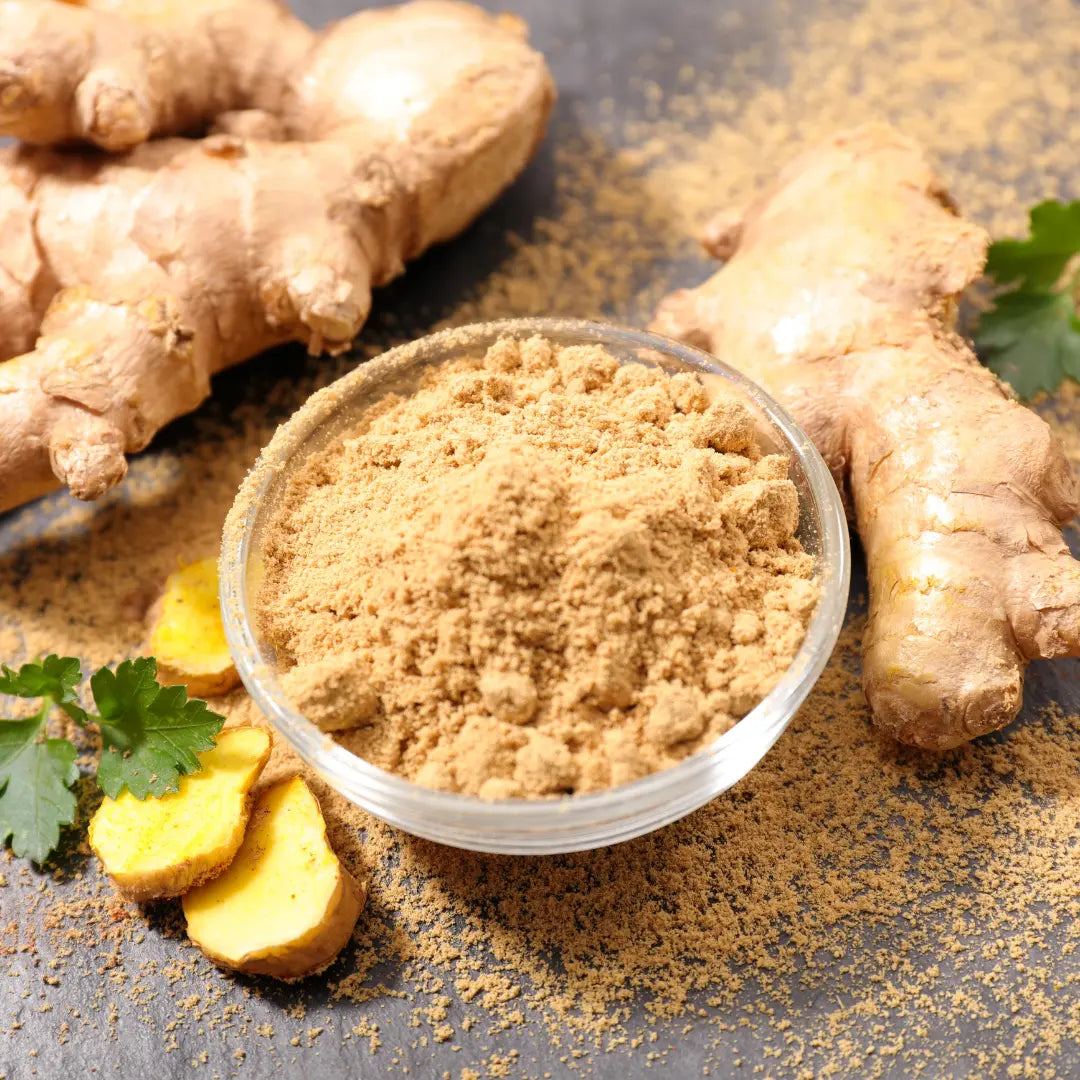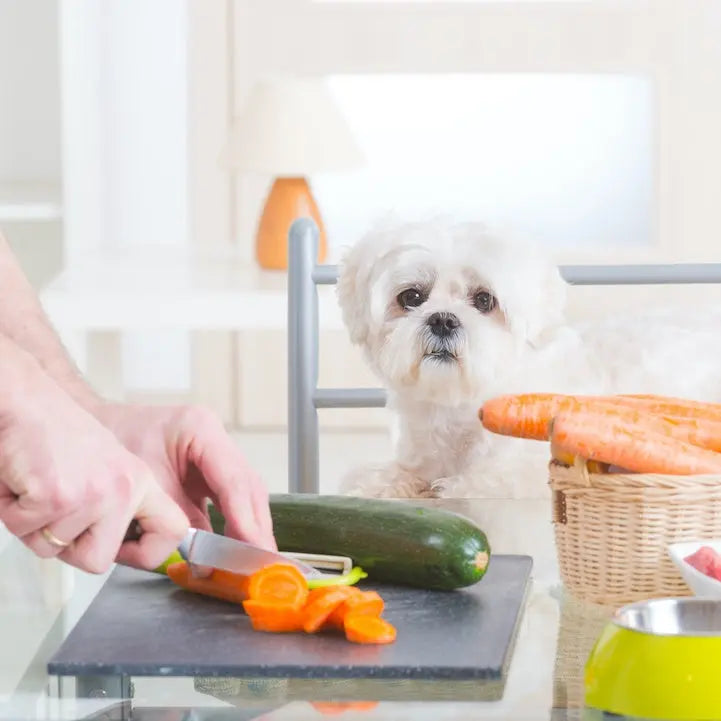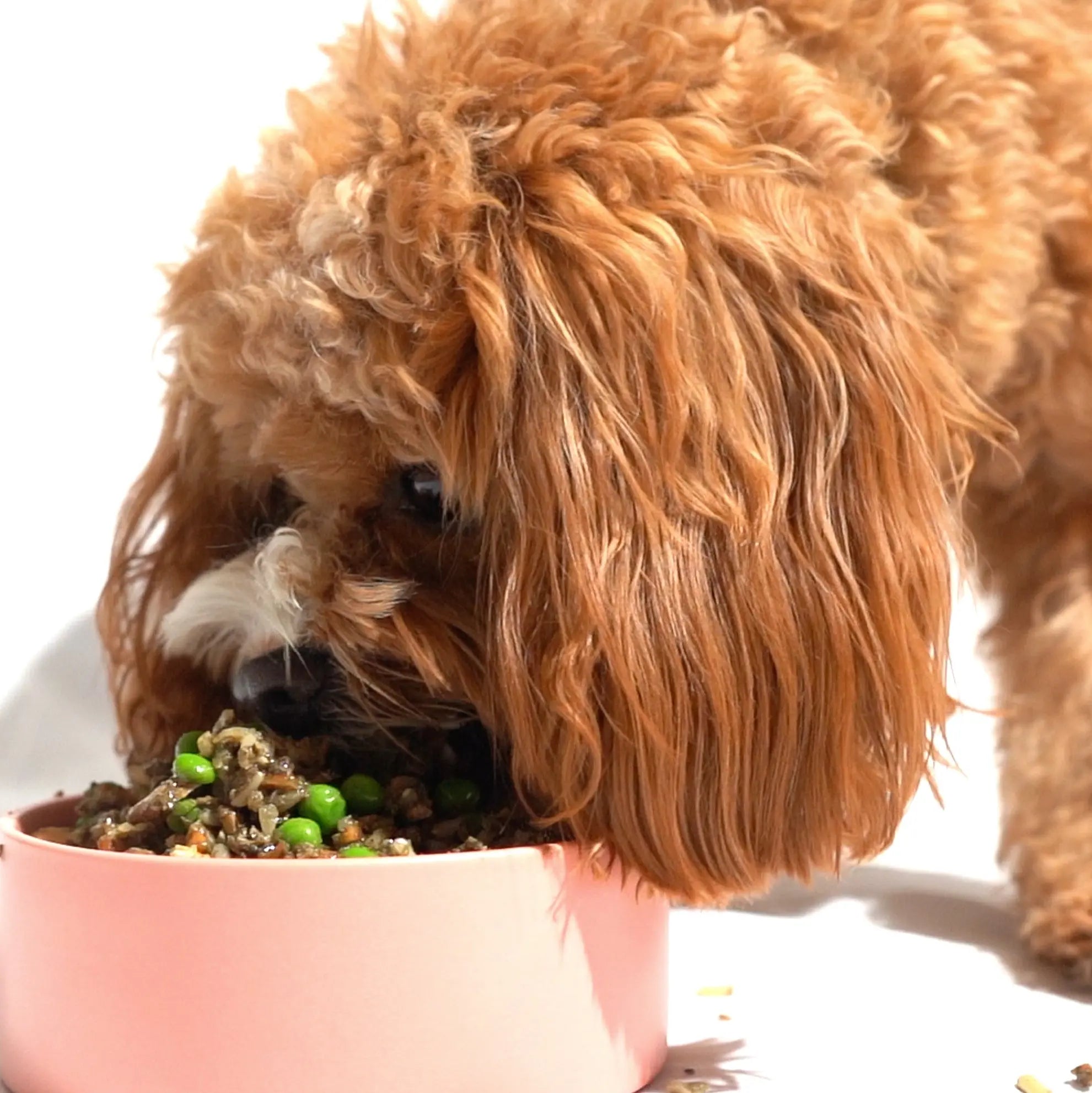The Wonders of Ginger for Dogs
As pet parents, we are always on the lookout for natural ways to improve the health and wellbeing of our beloved fur babies. Most people know the benefits of ginger root, but did you know it is also great for your pup? In recent years, many pet owners have begun adding ginger to their dog’s diet to help with digestive issues and joint pain. It can be an effective anti-inflammatory agent, can help your dog's digestive system and upset stomachs, and provides essential vitamins and minerals. Let’s dive into all the amazing things that ginger can do for your dog.
Can Dogs Eat Ginger?
Yes! While too much ginger can be dangerous for dogs, a small amount can be beneficial.
Health Benefits of Ginger for Dogs
Ginger is an ancient healing herb with powerful anti-inflammatory and antioxidant properties. It has long been used in traditional Chinese medicine as a natural remedy for ailments such as nausea and stomach upset. To this day it is still used for its natural anti-inflammatory properties, and studied for the effect its properties have on blood pressure, blood circulation, and blood sugar levels. And recent studies have shown that ginger also has many benefits when given to dogs. Ginger root contains essential vitamins and minerals including Vitamin C, magnesium, potassium, phosphorous, zinc, and iron. These nutrients help keep your dog healthy from the inside out. Furthermore, it has powerful anti-inflammatory properties which can help reduce swelling associated with arthritis or other joint issues in dogs. It is also an effective natural remedy for upset stomachs and bloating as it helps calm nausea and vomiting. Feeding ginger to your dog can help alleviate many dog’s stomach issues.
Adding Ginger to Your Dog Food
There are risks associated with feeding too much ginger to dogs. Here are some tips on how to add ginger into their diet safely:
- Start small- begin by adding a few pieces of fresh grated ginger root into their meals each day until they have adjusted; this will also give you time to monitor any side effects.
- Use fresh ginger root- fresh ginger is more potent than dried so it’s best to use freshly grated ginger root whenever possible; if using dried, start with smaller amounts as it is less potent than fresh.
- Supplement with treats- you can also make homemade treats using ginger root as an ingredient; this way you can control the amount of ginger being consumed by your pup. For a great recipe that your dog will love check out our homemade ginger bread treats.
Adding ginger to your dog's diet is fairly simple; you can either give them fresh or dried ginger root (in small quantities) or find specially formulated treats containing ginger at most pet stores. If you opt for the latter option, make sure you read the label carefully—some treats may contain ingredients that could be harmful to your pup if they eat too much of them! Alternatively, you can add powdered ginger root directly into your dog's food if they don't like the taste of fresh or dried ginger root on its own. You can also make homemade dog treats using fresh or powdered ginger root. If your dog gets motion sickness in the car, ginger could be a great solution. Feed your pup a tiny bit of raw ginger before the car ride, the anti nausea effects of ginger will help your pooch feel calm the whole journey. Just make sure that you start off slowly and keep an eye on how they react—ginger can be quite potent in large doses, so it's best not to overdo it!
Ginger in Dog Child Products
Ginger in Dog Treats
While multiple forms of ginger are readily available in human food I.e. ginger ale, ginger tea, ginger biscuits and gingerbread, it is harder to come by in pet food. A fun easy home cooked recipe we love to cook up for our pups (especially during the holiday season) are these Dog Child Gingerbread men.
Packed full of healthy ingredients these dog friendly gingerbread men are a huge hit with our wolf pack. While the gingerbread cookies you buy at the grocery store are not good for dogs, these gingerbread treats are a lot less sweet and have no preservatives making them a great addition to your dogs holiday meal plan. One important differentiator between our gingerbread men and the ones you will be snacking on this season is the lack of nutmeg. Please do not add nutmeg to your dogs gingerbread treats, even small amounts can cause an upset stomach for your pooch. You may, however, add a dash of turmeric if you want to add an extra boost of health to this recipe.
Side Effects of Feeding Dogs Ginger
Just like anything else, too much of anything can be bad for your pup so it’s important to monitor closely if you choose to feed them ginger. Too much could cause gastrointestinal upset such as vomiting or diarrhea in some cases so it’s important not to overdo it! Additionally, some dogs may experience an allergic reaction so keep an eye out for any signs such as hives or swelling around the mouth area if they consume too much at once. If your dog has any existing health conditions it is important to consult your vet before making any changes to their diet.
In Conclusion
Adding a bit of ginger root (or specifically formulated treats containing it) into your pup's diet can offer a variety of potential health benefits ranging from reducing inflammation associated with arthritis or joint problems to boosting their immune system. While there are risks associated with feeding your dog too much ginger, when used appropriately it can be a great supplement for their health and wellbeing! Freshly grated ginger root can easily be added into their meals each day or even used as an ingredient in homemade treats for a special treat! As always though, moderation is key—start off small and watch out for any adverse reactions before giving larger amounts so that both you and your pup remain safe! Be sure to consult a veterinarian before introducing any new food into their diet and always monitor carefully when giving them a new food item just in case any allergies arise. When done properly and in moderation, incorporating this superfood into their diet could do wonders for your dog’s health! With all this information now under your belt concerning everything related to adding ginger to your pup's diet, you should be feeling confident about taking advantage of this great natural resource!







